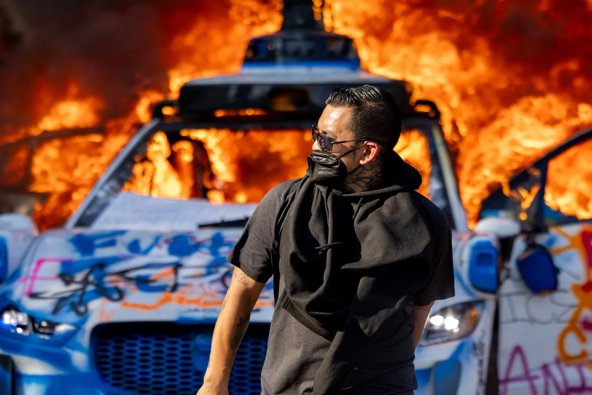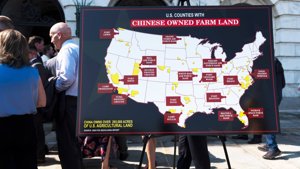
House GOP: Dem Rhetoric Fuels ICE Attacks; Senate Acts on Riot Funding
House Republicans link Democratic rhetoric to rising attacks on ICE, as Senate moves to penalize protest funding.
House GOP Blames Democrats for Anti-ICE Violence
House Republicans are warning that inflammatory language from Democratic politicians is fueling a sharp increase in violence against Immigration and Customs Enforcement (ICE) and Border Protection (CBP) officers. The warnings come amid a wave of anti-ICE protests across the country in response to President Donald Trump’s aggressive crackdown on illegal immigration and mass deportation operations.
Representative Tom McClintock, R-Calif., stated that “increasingly violent attacks against law enforcement are being egged on by irresponsible Democratic politicians.” He argued that without strict enforcement of immigration laws, the United States cannot maintain its borders or national sovereignty. McClintock criticized the previous administration’s open border policies and stressed the importance of strong border control to national identity.
On Monday, Department of Homeland Security (DHS) Secretary Kristi Noem attributed the recent shooting of an off-duty CBP officer in New York City to Democratic “sanctuary city policies.” The officer was reportedly attacked in Manhattan’s Riverside Park. A Dominican national, Miguel Francisco Mora Nunez, who had previously been apprehended by Border Patrol, was taken into custody in connection with the incident.
Other House Republicans echoed these concerns. Rep. Andrew Clyde, R-Ga., asserted that increased violence stems from “radical rhetoric” by some members of Congress, saying, “We should be applauding [ICE and CBP agents], not demonizing them.” Clyde emphasized that such rhetoric incites violence and undermines the safety of communities.
Rep. Michael Guest, R-Miss., and Rep. Mariannette Miller-Meeks, R-Iowa, both highlighted the need to support law enforcement and focus on deporting criminal offenders. Miller-Meeks stated, “It’s unreal to me that people are attacking law enforcement agents trying to do their job,” urging lawmakers to remember the dangers posed by gangs and cartels. She stressed that effective deportation efforts are necessary to address rising illegal immigration.
Senate Introduces Bill to Penalize Protest Funding
As House Republicans focus on the impact of anti-ICE rhetoric, Senate Republicans are seeking new tools to combat the funding behind violent protests. Senator Ted Cruz, R-Texas, has introduced the Financial Underwriting of Nefarious Demonstrations and Extremist Riots (STOP FUNDERs) Act. The legislation would enable the Department of Justice to use the Racketeer Influenced and Corrupt Organizations (RICO) Act to issue conspiracy charges, asset forfeiture, and enhanced penalties against organizations and individuals who fund or coordinate violent interstate riots—including those targeting ICE and engaging in antisemitic attacks.
“Every American has the right to freedom of speech and peaceful protest, but not to commit violence,” Cruz said. He cited concerns that both domestic and foreign entities are backing riots to undermine national security. The STOP FUNDERs Act, cosponsored by six GOP senators, aims to give law enforcement the tools necessary to hold those responsible accountable.
The bill follows high-profile demonstrations, including riots in Los Angeles that resulted in over $20 million in damages and major disruptions on college campuses. The Anti-Defamation League reported a significant surge in antisemitic and anti-Israel incidents, linking many to organized protest networks. The House Oversight Committee is also investigating the sources of protest funding, citing concerns about “dark money” networks linked to wealthy individuals and foreign interests.
Some prominent figures, such as China-based billionaire Neville Roy Singham, have denied allegations of illicit funding, arguing that claims of impropriety are unsubstantiated. The legislative debate comes as lawmakers seek to balance protections for peaceful protest with measures to deter violence and maintain public order.
As both chambers of Congress respond to rising unrest, the debate reflects broader divisions over immigration, law enforcement, and the boundaries of political activism. With the STOP FUNDERs Act now heading to committee, the outcome could reshape federal oversight of protest activity and the tools available to confront threats to public safety.






